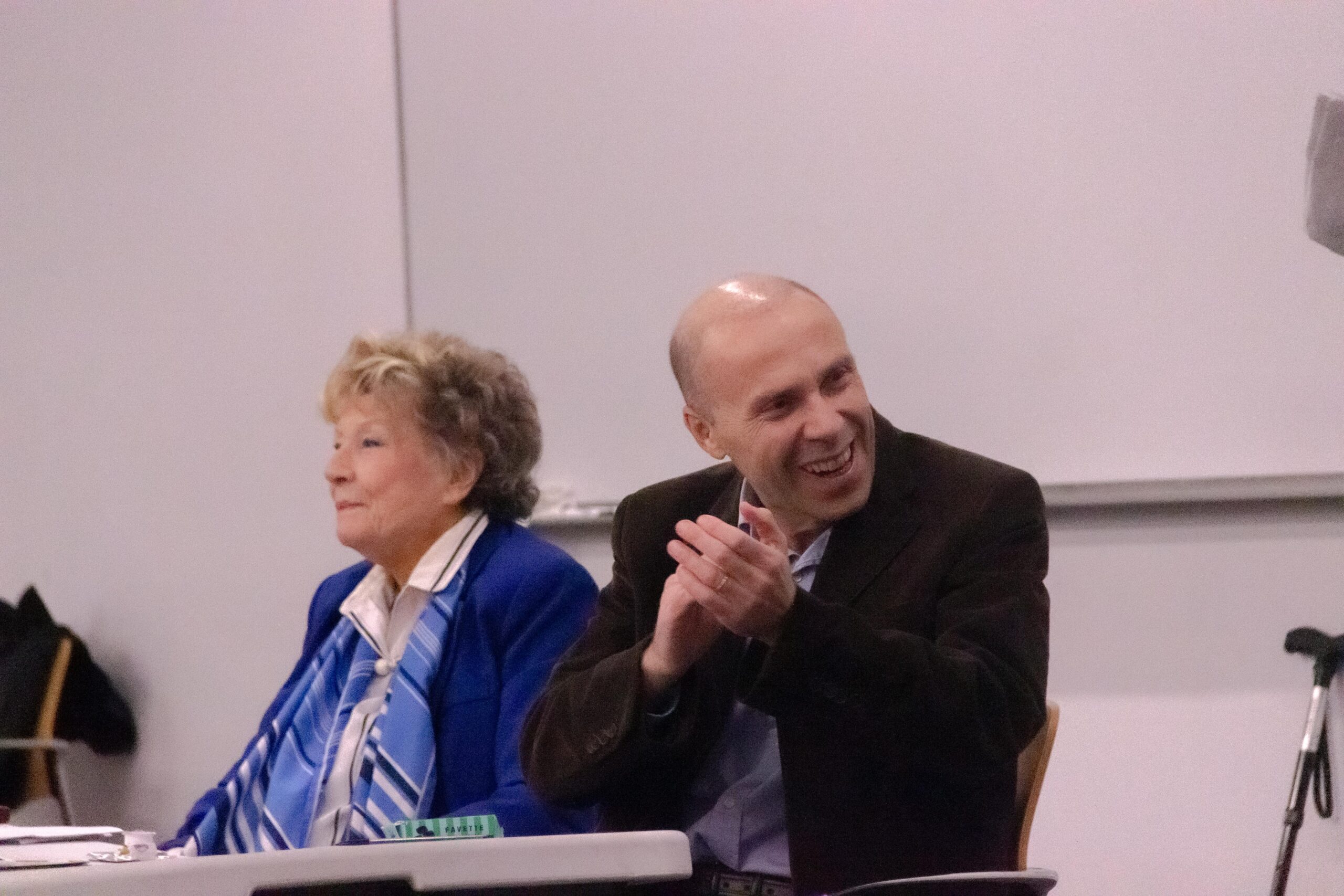On Thursday, Nov. 13, University of Rhode Island professor Michelago La Luna had an open discussion in Swan Hall with internationally acclaimed Italian author and activist Dacia Maraini to conclude URI’s 2024 Italian Heritage and Cultural Month.
La Luna said that Maraini is a leader in Italy covering themes of World War II, gender, violence against women and children, and education. He said that he hopes people who attend the discussion here are able to learn from her harrowing experiences and provide direction and life advice in different ways. He singled out one quote that she said to his class that he found particularly inspiring: to never forget history and so we can avoid further atrocities.
The discussion started with an Italian language performance by some of La Luna’s ITL 305 students. They performed an excerpt of their interpretation of Maraini’s play “Tre occhi su Pinocchio,” or “Three Eyes on Pinocchio” in English, to both honor her work and the author’s 88th birthday. During the performance the room sang “Tanti Auguri a Te,” the Italian equivalent to singing “Happy Birthday.”
After the performance Maraini explained her connection to the story of Pinocchio. Maraini was born in Italy but moved to Japan in 1938 when her parents immigrated to escape fascist Italy. During Maraini’s early childhood, Japan became allies with the fascist Italian government and began cracking down on fascist dissenters in Japan, sending them to concentration camps, including Maraini’s parents. Maraini said that in these camps her parents first introduced her to the story of Pinocchio.
“In the concentration camp, mythology comes out by something very deep in you,” Maraini said.
This mythology was transferred later to her writing “Tre occhi su Pinocchio” and helped influence her future novel retelling the events of her time as a child political prisoner, according to Maraini.
“I started writing about my two years at the concentration camp many times but I would stop because it was too painful,” Maraini said.
Eventually she was able to write about the experience of nearly 80 years later when she felt a responsibility to tell her story to a world that was getting more chaotic. She went on to say that writing about these painful experiences allowed her to unlock memories she forgot she knew.
After Maraini and La Luna finished their initial discussion, the floor was open for questions from the audience of staff members, scholars and students.
La Luna first became acquainted with Maraini at Harvard in 1997. Since then their relationship has grown and he has translated and edited several of Maraini’s works and has organized tours to numerous American universities since 2012, including an annual visit to URI.
“We worked on her relationship with the United States, she comes here every year and loves visiting the other universities,” La Luna said. “She has been very kind and close to URI.”
La Luna said that her work as a feminist and advocate spoke to him as a member of an Italy- Albanian minority.
“The Albanian minority in Italy has this matriarchal system so I think that women should play a better role in our society and Maraini’s fight for women’s rights and equality attracted me to her work,” La Luna said.
More information regarding URI’s 2024 Italian Heritage and Cultural Month events can be found on their website.




